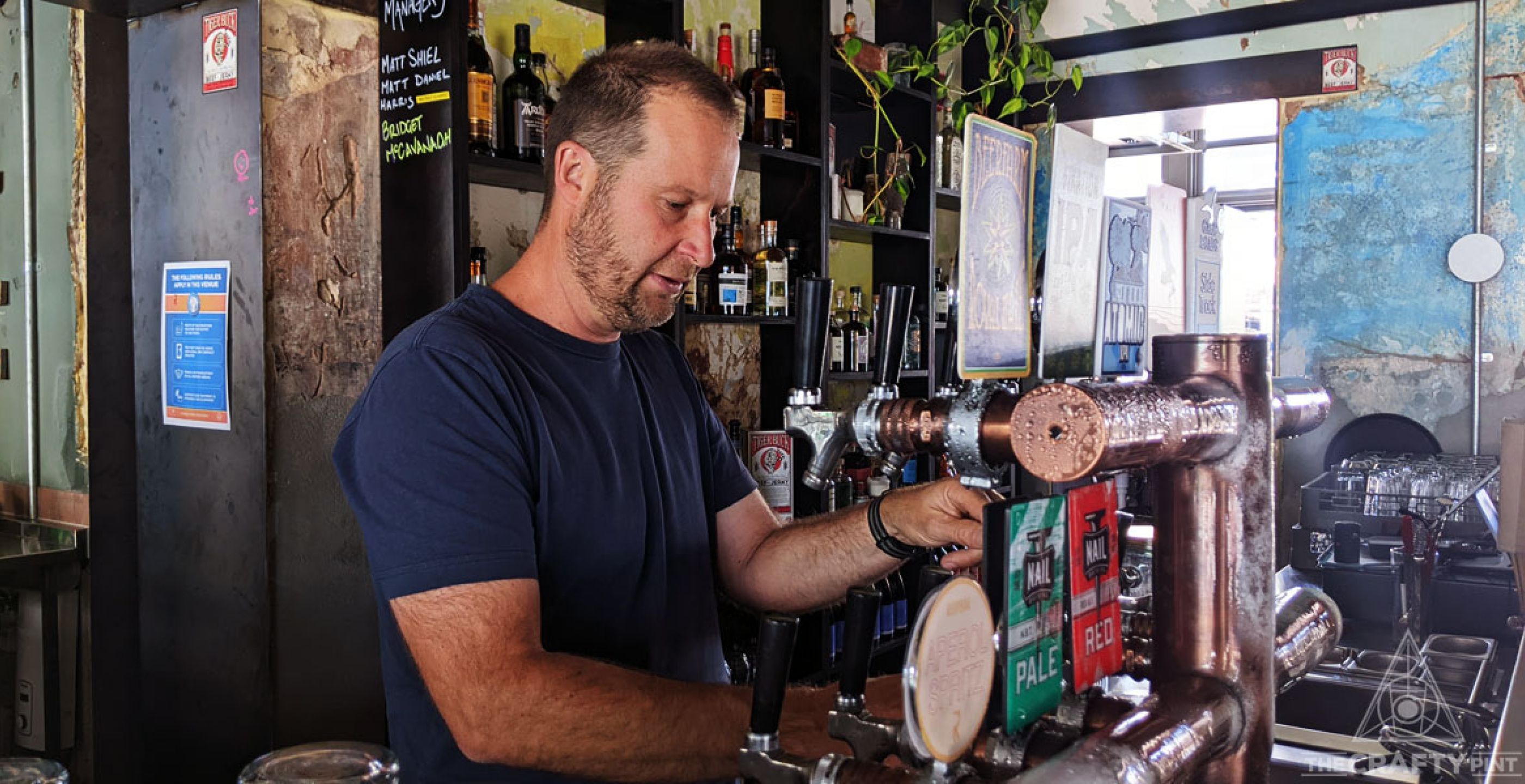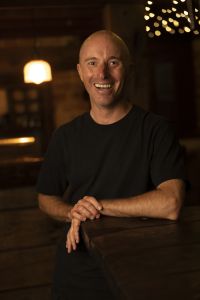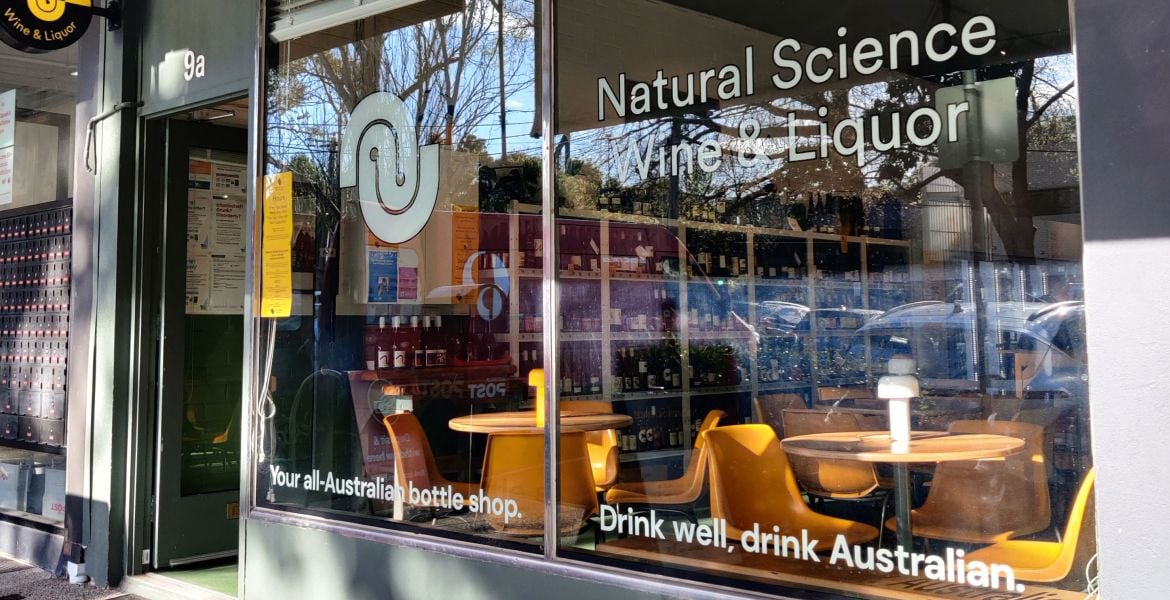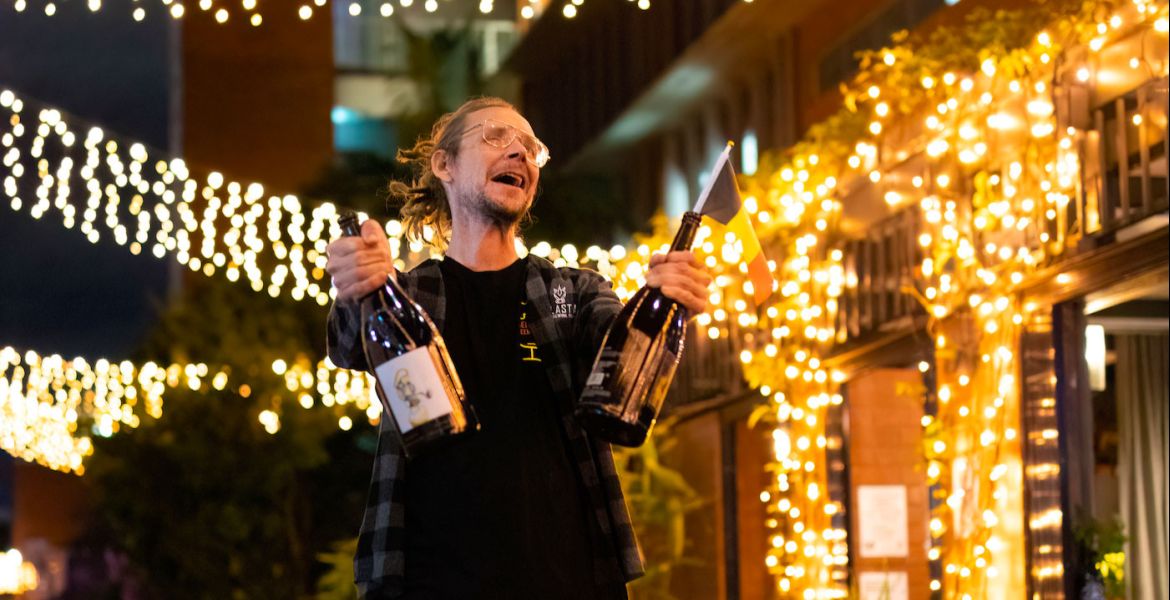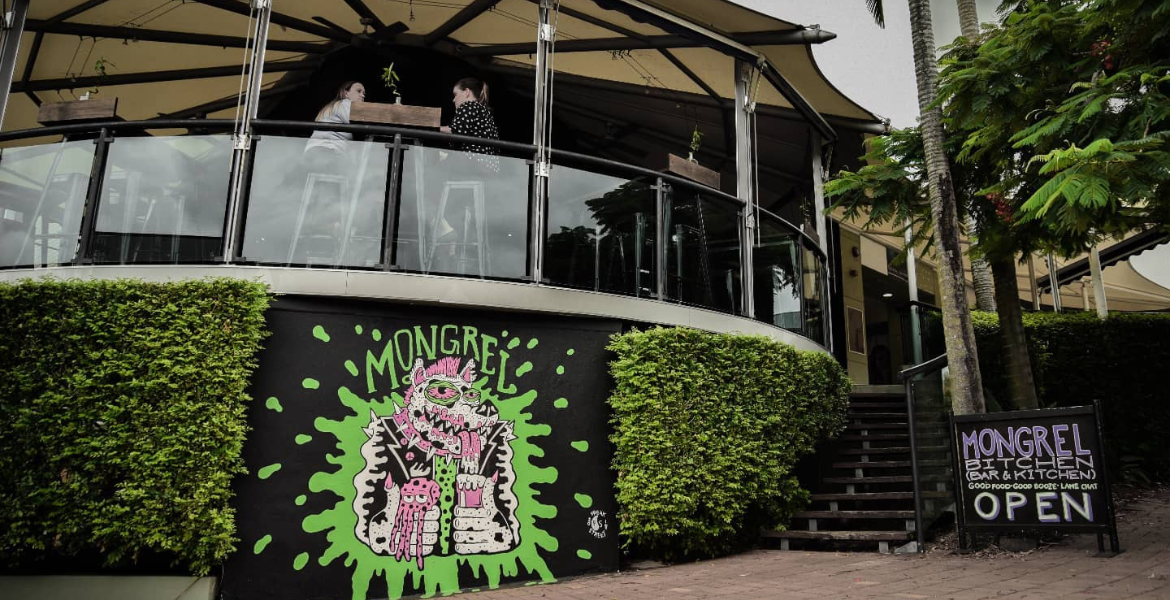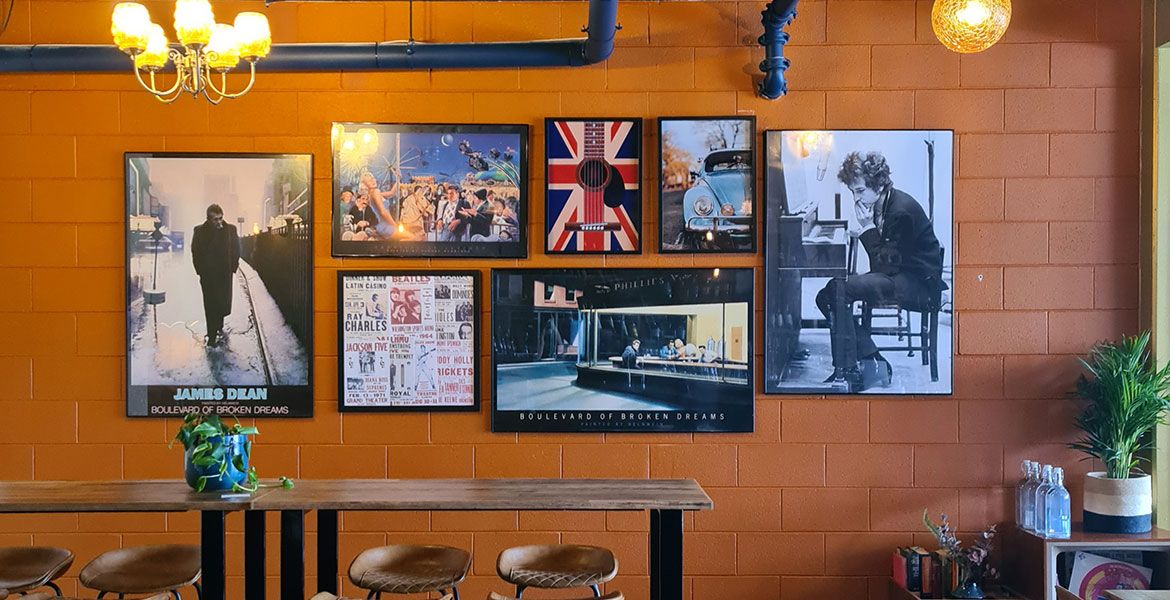Our Behind Bars series normally focuses on what's happening at a moment in time in a particular part of the Australian beer community, as seen by someone behind the bar of a key venue or retailer. However, when the opportunity arrived to chat with someone who has help shaped Australian beer culture over two decades, the general zeitgeist-gazing of such articles turned into something broader.
In this instalment, we share a beer and conversation with Miles Hull, someone who was there at the very start of Little Creatures, about his new venture, Ruinbar, and a life in beer and hospitality.
Your career encompasses formal training at a Swiss hospitality school, an iconic Canadian brewery, Little Creatures, White Rabbit, WA State Buildings, the Alex Hotel, Quarter Acre neighbourhood pub and more, so how do you keep falling into these things?
I’m a believer that when a door opens you have a bit of a look down, have a sniff, and if it takes you in a different direction, well, cool. I don’t to like to sit still. I like things changing, and I like to surround myself with interesting people, and people that like to challenge you.
I think hospitality is a career that allows you to do that. It’s not just, "you go to an office and you just do this" – it allows you to really change. Travel was a big part of that. Hospitality allows you to travel, and that’s what took me to craft beer in the first place.
I knew a little about beer, but stopping off in Canada, I went into this brewpub – the first time into any brewpub – I smelled the hops, tasted an IPA, a pale ale – and this was in ’97 – and I just went: "Fuck, this is awesome!"
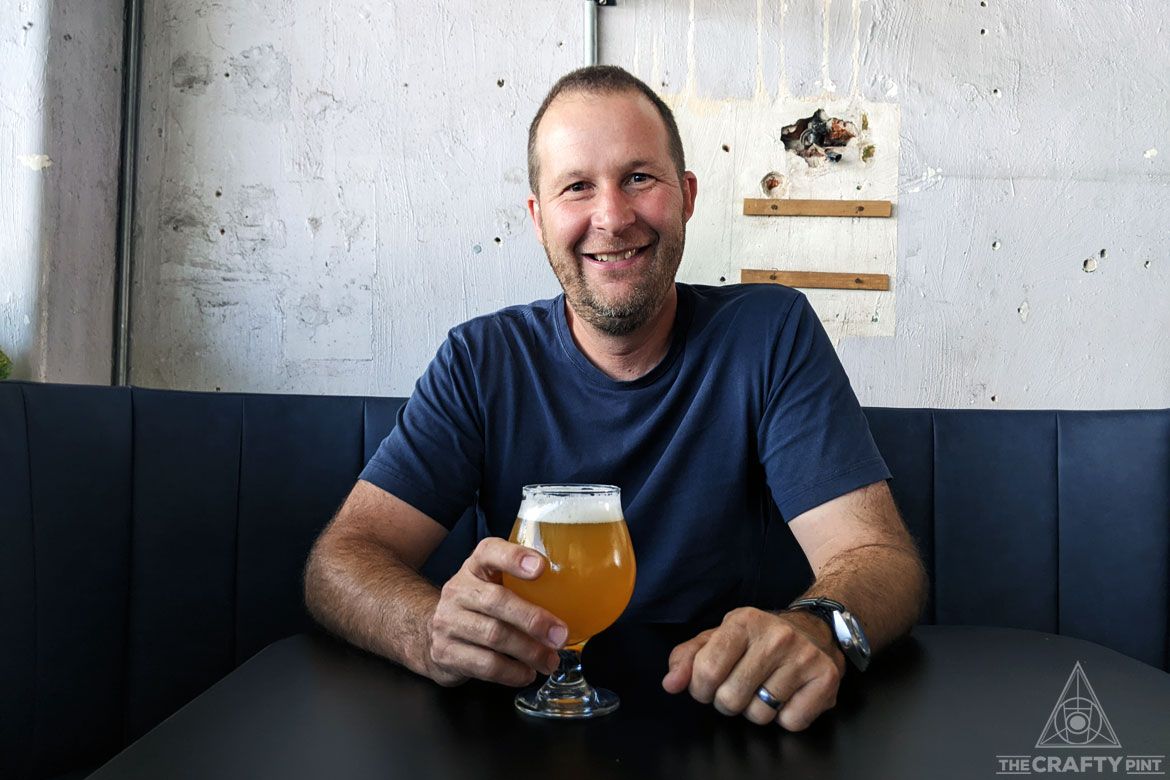
After graduating from hospitality school in Switzerland, you worked in hotels for a while before eventually travelling back to Canada. Was the lure of beer too great?
The dream was to work at Steamworks, and the first day I said that I’d better start looking for a job I opened up the newspaper and there, in the adverts section, was Manager – Steamworks.
I worked there just over two years and feel in love with beer, the industry and culture over there – the Canadian beer festivals, US craft beer festivals, beer conferences – and saw stuff was happening. About the only Aussie I bumped into was Chuck Hahn. This was early, early days.
At that stage you returned to Perth and took a role at Nic Trimboli’s Balthazar, a fine dining restaurant which was ahead of its time, before heading east. How did you end up back in Perth?
I was working in Sydney for the Olympics and flew over for a meeting. Nic took me into the Creatures’ shed and I said: "Fuck! This is awesome!"
I packed up my tiny Sydney apartment, flew back over, and went to Little Creatures straight from the plane that arvo because they were in the final weeks of pre-opening at that stage.
Being a hospitality die-hard, Phil Sexton and Nic were my idols. Out of Perth, Matilda Bay, Oriole Café, Dome Coffee, they’d done all that, so the opportunity to work with them was fantastic. I think I was 26 and I was GM of Little Creatures.
What influence do you think you had on the Little Creatures that arrived in 2000?
I think Freo had everything to do with the success of Little Creatures. All that we did was capture that culture of Freo and transfer it into Little Creatures. We broke the rules a little bit. Before that everyone wore uniforms and staff had name badges, and we got rid of all of that.
We were quite aligned in our thinking, and the culture of Fremantle allowed us not to have uniforms, and to have cool and interesting staff. The other place that Little Creatures was looking to open was in East Perth, on the side of the Royal, and I think that had Creatures opened a brewpub there, the culture would have been completely different.
Nic was really open and knew the fundamentals of hospitality but wasn’t scared to be bound by it, which allowed me the freedom to take that and drive it. It was a combination: I studied in hospitality in Switzerland with white table cloths, hand behind your back and "Yes, sir. No, sir", so I had strong fundamentals in hospitality service. Our manager, Bill Fog, who was part of the place for a long time, he was quintessentially Freo, and a little bit of that hippy lifestyle, but he was one of the best operators on the floor. He just knew how to deal with people.
So, we had this really good mix, having a hippy culture but knowing the fundamentals of good hospitality in an environment that wasn’t a typical pub; it was in a shed, and that just blew people away, and the size and scale of the building.
It was quite unique, and it introduced that US hops character in Australian beer, which I knew was addictive from my time at Steamworks.
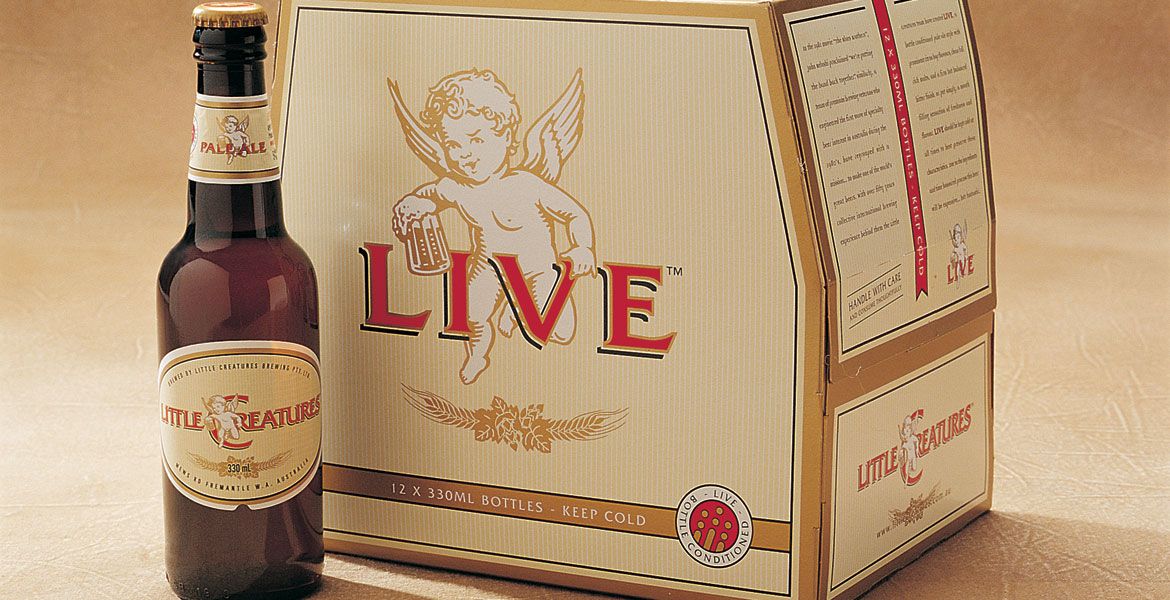
How would you describe the WA beer scene at the moment?
It’s really exciting! We’re kinda an island in a way, and we’re quite parochial here in WA, and proudly so. And the benefit for a little brewer in WA is the distance of the Nullabor for an east coast brewer to come is really costly, which kinda protects the market of Western Australia.
On the other side of that, it’s very costly for a little West Australian brewer to get a footprint on the east coast, particularly when we talk about being local and relevant, which are the buzzwords now, but it’s true.
Obviously it’s grown, and it’s a competitive landscape. We don’t have a huge population in Perth, which is fundamentally a big issue for hospitality and for brewers. There’s maybe a ceiling, but if you find your community and find your location and you can play to those strengths. But I think there’s still plenty of growth opportunity.
Gage Roads is dominating in this market. Single Fin is the Corona of today for kids – widely consumed. They are physically the biggest brewery now because the big boys have all gone. Feral’s lost its shine since the sale, unfortunately.
I think the movement that big chains are starting to realise is that local is really important. The Dan Murphy's are giving some shelf space to local breweries. It’s not just about national distribution anymore.
And the emergence of brewpubs is big thing: a little brewery with a cellar door I think is cool.
“I like to joke that there was never a better time to be a craft beer drinker than in 1895, before brewery regulation in Australia, because every community had a little brewery. I think we’re getting back to that with little suburban brewpubs, and country towns having that. That future’s bright.
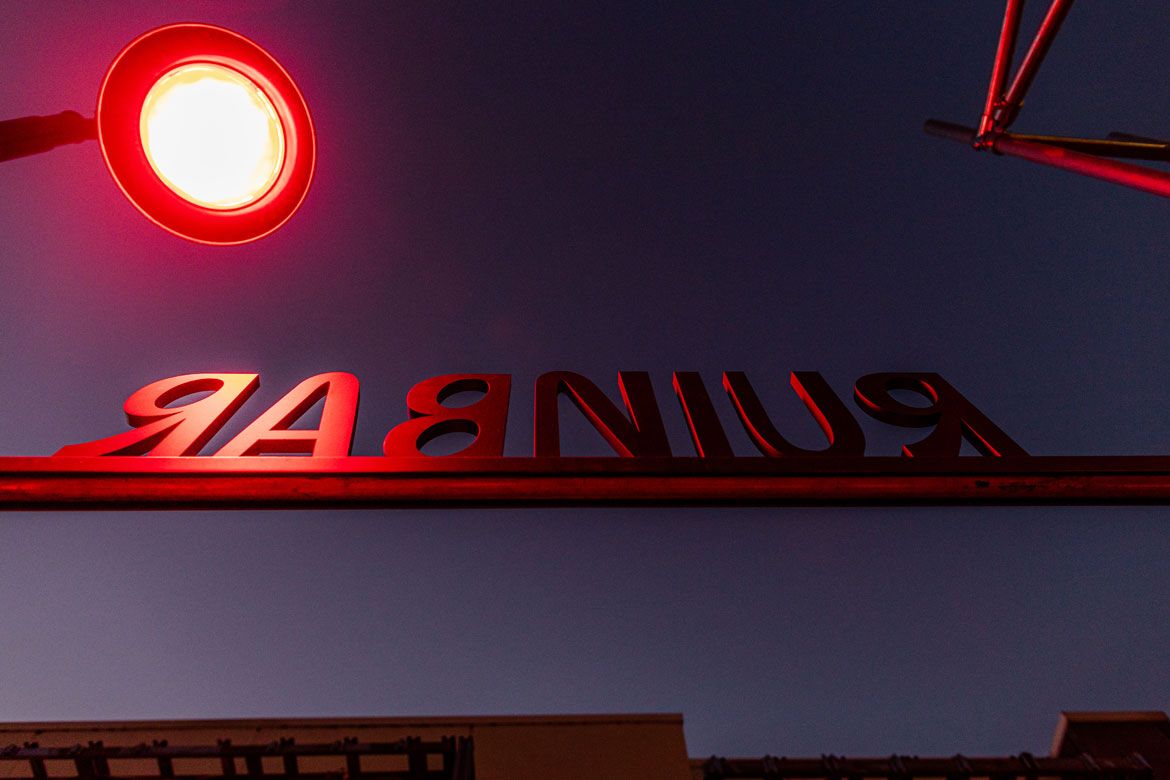
With all of this in mind, what’s the idea behind your newest opening, Ruinbar?
It was originally going to be the Ruinbar with a 24-hour diner as part of a youthful, fun hotel next to one built in 1903. It’s one building with five shops, or shop houses. Originally, you’d have the shop and you lived upstairs.
We held on to the site for years, and I’m glad we didn’t do the hotel because we would have opened into a global pandemic. So, the development authority was always there, and I said I want to do a craft beer bar, just a bar with no kitchen.
We love this ruin idea, the idea of these little Berlin holes in the wall that inhabit these ruinous spaces. Eastern Europe has them, and that’s where the name came from: a Berlin squatters' bar and yard.
Ruinbar is about showcasing great beer. Mostly craft beer, but beer in general. We don’t want to be snobby.
I remember when my dad’s friends were all drinking Redback, and when we introduced Little Creatures it was "boutique beer". "Boutique" is a fancy little thing, and think the US did well to change that term to craft, and that quickly emerged as more brewers came up.
I remember for my 18th birthday, which is a long time ago now, I had Emu Export and there was a new beer that I’d just seen. I thought that I’d go and splash out on this new beer, and it will be a little carton that I’ll hide around the corner for me and my special mates, and that beer was Carlton Draught! Because if you in WA you drank Swan, if you were in Queensland you’d drink XXXX, Tooheys in New South Wales, and VB in Victoria. That special beer was the Emu Export of Victoria, it just came in a fancy can.
Now, an 18-year-old doesn’t know a world without craft beer, it’s just beer. So, let’s not segment it, let’s make the beer industry inclusive. It’s all about beer, whether you like mainstream beer or whatever. If you want to drink Swan Draught, cool. It’s just about being inclusive.
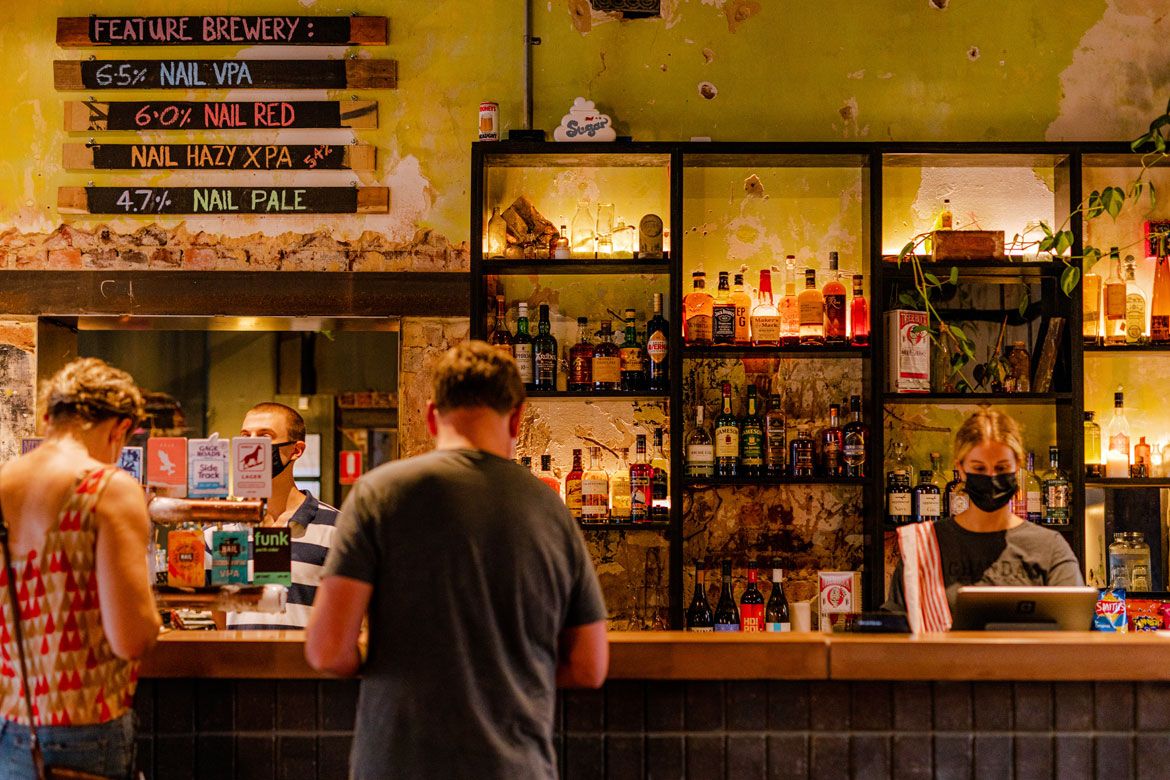
We are independent. We’re not contracting so that we can put on what we want. That’s not to say that we wouldn’t put Emu Export or Balter on tap for a little bit but because it’s from one of the big boys.
For sure, I like supporting local number one, and then independent, and the last priority will be a multinational, but if it’s a good brewery and a good beer then it may have a place. And the reality is that most people are drinking those beers.
For this venue, it’s about supporting the beer industry.
What’s changed over the past 20 years?
The diversity and accessibility of beers. What’s exciting now is that when you go into most pubs – even if it is a big, multinational-owned pub – they generally have a great range. CUB and Lion have got pretty formidable portfolios now.
When Little Creatures started, it was just hard to convince anyone to put more than one ale on tap. So, they’d have ten lager taps and then one pale ale. We’d go in and show Little Creatures and they’d say: "Oh no, we’ve already got a pale ale, we don’t need two." And now you see lager fighting for space!
As the operator of Quarter Acre, Jetty and now Ruinbar, what styles are proving popular?
For Jetty, it’s Trumer Pilsner and Dingo Lager, Gage Side Track, Eagle Bay Pale, really easy-drinking beers. Quarter Acre is a good suburban pub, with a broad range of customers. Gage Single Fin and Swan Draught are probably the best-sellers, and on the rotational taps people dabble with a sour, or something like that.
Sours have gone in a nice direction. They’ve become a lot cleaner, and a little bit easier to drink, and lighter. And I think people are realising that they can be really refreshing, and lighter in alcohol.
As the craft beer market ages, and its customers age, people are looking to lighter alcohol beers, but you still want to drink interesting beer. So, I think that market is going to continue to grow in that direction.
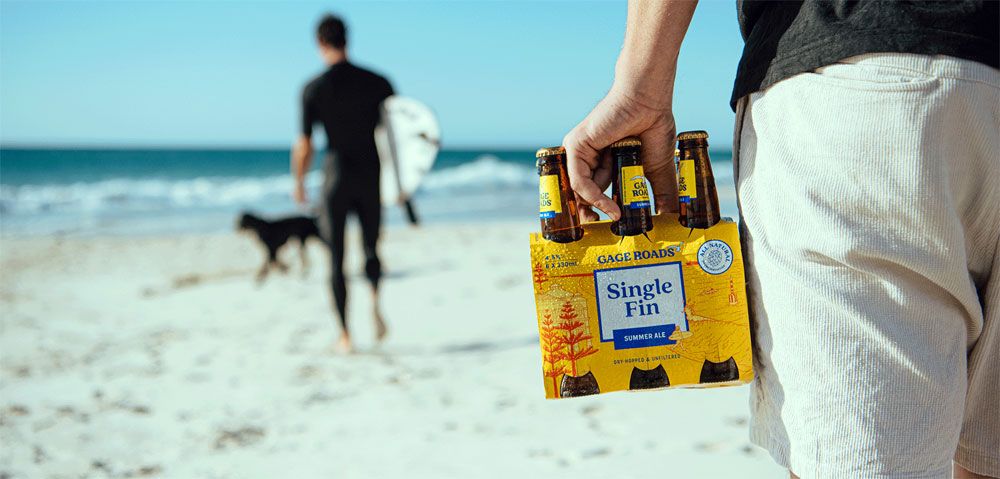
What are you and your team drinking at knock-off?
We all like to try something different, but if it’s been hot, like it has been, you want that thirst-quenching character, so bitterness and hop character starts to play a part, but not overly heavy or rich.
I’ve been drinking a lot more lagers lately. I still love pilsners – a really crisp Eastern European style pilsner. I just think it’s one of the great beers.
But I still really crave that rich, resiny character, not heavy in alcohol, but you know you’re drinking something really yummy.
The higher ABV beers the whole team are staying away from actually. And the original Matilda Bay Dogbolter is still one of my favourite beers.
What’s the one thing you’d like to see more of in the beer world?
Within the industry, I’d like to see more of an acceptance that we are all in the same industry. Let’s not bicker about ownership or contract brewing, it’s just about the beer industry, but I do think that truth in labelling is important. Let’s just concentrate on keeping beer drinkers engaged in the industry.
I get really frustrated when Stone & Wood sells and people are outraged by that. Any business, it’s a business! Good on those guys for creating something phenomenal, and being rewarded for it. I think it is a very supportive industry but there is this big division.
I’d love to see greater support for independent bottleshops. If we’re worried about independent beer, then we should be worried about independent bottleshops.
From a consumer point of view, if you’re hating on Stone & Wood for selling out, then don’t go setting foot into one of the big, multinational bottleshops. Go to your local bottleshop. I love guys that own a local bottleshop, they care and they’re in it. That’s not to say that a guy running a big multinational bottleshop doesn’t care, but support those that are all in. It will be sad if we start losing those local bottleshops.
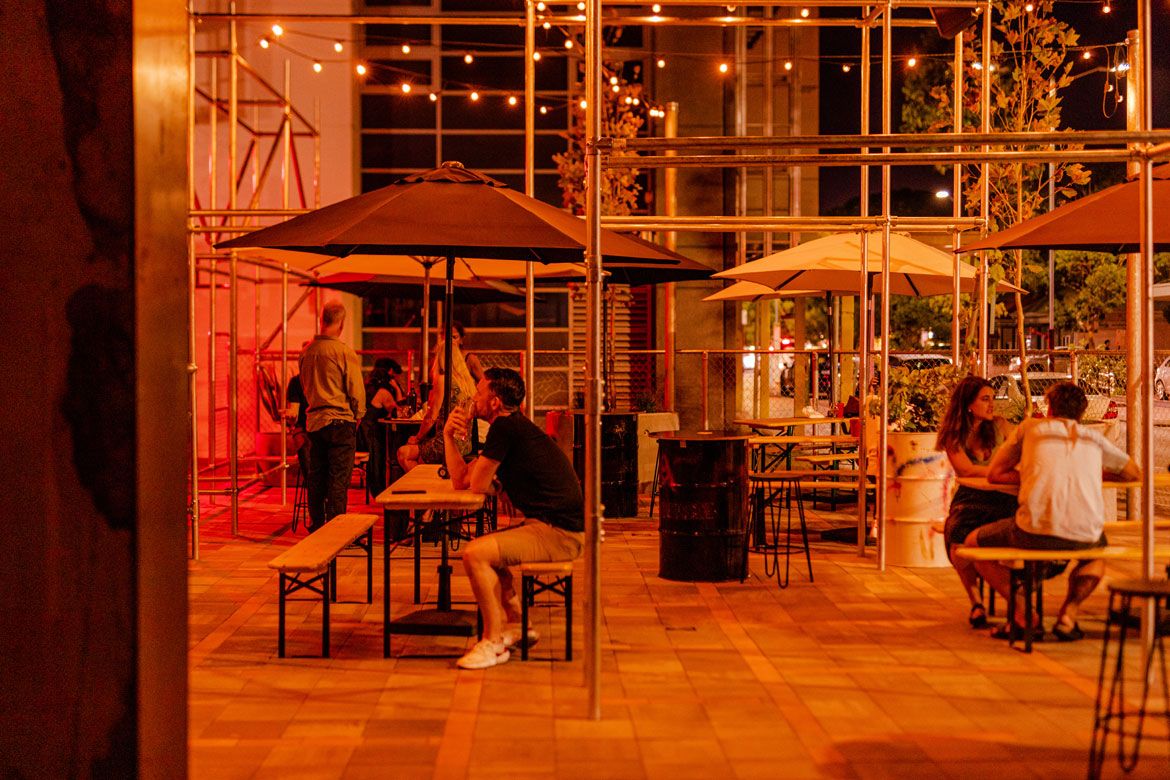
What do you expect from beer in Australia in the next ten years?
I think the mid-strength category will continue to grow, and with diverse styles. I think that is a sweet spot in the market.
Hops have had their thing. Everyone is saying malt will have its thing and that lagers are resurging.
It’s interesting to see craft brewers dabbling with adjuncts like rice and corn, which have been more typical mainstream lager territory. You know, Stone & Wood coming out with Green Coast Lager made at Yenda. What is that? It’s another brick in the wall coming down of craft beer versus mainstream beer. It’s just beer.
Don’t think that just because you’re a craft brewer there’s rules to what you can and can’t make. It’s entirely the right of the consumer to determine that by demand. I don’t begrudge any brewer, craft or not, for making a mainstream lager, it’s a business decision. But don’t give shit on a little brewer that’s going to do that.
Beer needs to protect beer.
And finally, any thoughts about the immediate future?
We’ve been very lucky in WA. We’ve had few lockdowns, and we’ve got a market that’s relatively willing to go out.
The one thing with the last two years is it’s unknown. When we had that very first lockdown in March 2020, it was just the worst week prior with the uncertainty of what was going on. No one knew what was happening, but that lockdown was actually a relief, in hindsight, because there was certainty.
While it’s different now, as a hospitality operator you have to accept that it’s a little bit out of your control. But you need to look clearly and objectively at the cards that you’ve been dealt.
If there’s any good thing to come from the impact of COVID is that it’s made hospitality owners and operators understand ultimately what we do as a business – we love looking after people, we love serving, we love the food, we love the booze – but ultimately, it’s made people look a bit more insular. What is your cash flow? What are those KPIs in your business to make sure that you’ve got longevity in your business.
It’s about the long-term for me, and that’s honed it a little bit, and you can’t take your customers for granted. You can open a venue tomorrow, and there is literally nothing that says people will come. It’s all on a hope.
You can see what Miles and his team have created with Ruinbar at 165 Beaufort Street, Perth, and you'll find it alongside well over a thousand breweries and good beer outlets in the free Crafty Pint app.
Look out for more from Miles later in the year, with a new brewpub featuring onsite accommodation coming to Dunsborough.





